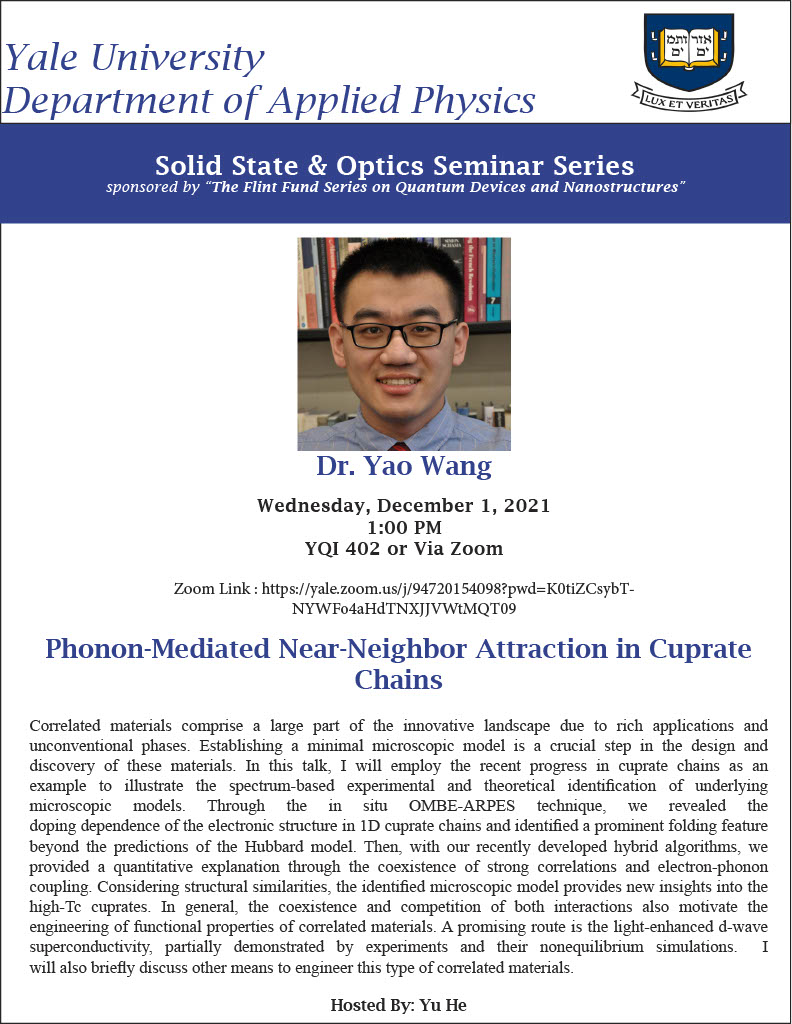Solid State & Optics Seminar Series
sponsored by “The Flint Fund Series on Quantum Devices and Nanostructures”
Wednesday, December 1, 2021
1:00pm
YQI 402 or Via Zoom
(Yale Quantum Institute- 17 Hillhouse Ave)
Zoom Link : https://yale.zoom.us/j/94720154098?pwd=K0tiZCsybTNYWFo4aHdTNXJJVWtMQT09
Dr. Yao Wang
Department of Physics and Astronomy, Clemson University
Yao Wang is an assistant professor at the Department of Physics and Astronomy of Clemson University. He received bachelor degree from University of Science and Technology of China in 2011 and Ph.D. degree from Stanford University in 2017. After that, he worked at Harvard University as an MPHQ postdoctoral fellow, before joining Clemson in 2020. His research interests lie in the theoretical and numerical study of quantum many-body problems and their experimental correspondence.
Phonon-Mediated Near-Neighbor Attraction in Cuprate Chains
Correlated materials comprise a large part of the innovative landscape due to rich applications and unconventional phases. Establishing a minimal microscopic model is a crucial step in the design and discovery of these materials. In this talk, I will employ the recent progress in cuprate chains as an example to illustrate the spectrum-based experimental and theoretical identification of underlying microscopic models. Through the in situ OMBE-ARPES technique, we revealed the doping dependence of the electronic structure in 1D cuprate chains and identified a prominent folding feature beyond the predictions of the Hubbard model. Then, with our recently developed hybrid algorithms, we provided a quantitative explanation through the coexistence of strong correlations and electron-phonon coupling. Considering structural similarities, the identified microscopic model provides new insights into the high-Tc cuprates. In general, the coexistence and competition of both interactions also motivate the engineering of functional properties of correlated materials. A promising route is the light-enhanced d-wave superconductivity, partially demonstrated by experiments and our nonequilibrium simulations. I will also briefly discuss other means to engineer this type of correlated materials.
Hosted by: Yu He
